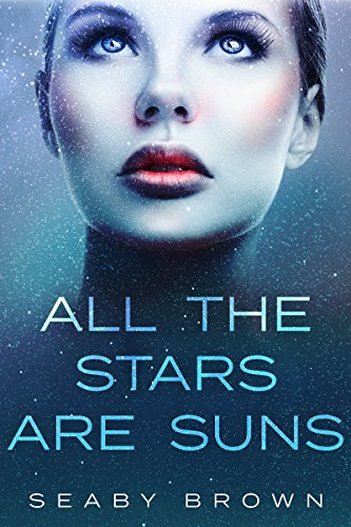 Written by a Silicon Valley entrepreneur, “All the Stars are Suns” is the author’s estimation of what the future will hold as humans evolve and shape the technology around them. At its core, this book is a look at the relationship between man and machine and how the different religious groups and governing bodies view that changing relationship. It offers a portrayal of how the world becomes ever smaller, blending cultures and languages into one big hodgepodge of dialects and races as well as the acceptance of different sexual orientations. As someone who is entrenched in the changing tech world the way Brown is, it’s no surprise that her story follows that of a true sentient artificial life form and the perils that come with being different from others, all while striving to colonize the stars when terrorist and idealist fanatics stand in the way. And, indeed, that’s what the synopsis has you believe as well, and while the book is about all these things, it’s not as… tense, shall we say, as the synopsis portrays. This is no hair raising race to the stars before the main character(s) secrets are found out, but more a slow, methodical chess game to show where all the players are as they converge on Sincerity/Quan. This is a pretty hard science fiction book in that the author spends a great deal of time on the technological side of things and explaining the new biochemistry etc. that is being formulated; again not surprising given the authors background. But it does go into the weeds on these topics, so you have to really enjoy the hard science side or this book may be a bit boring. There are also a lot of characters that the reader is given the perspective of—like a lot—and some have very similar names to others, so it got a bit hard to keep them all apart, especially as you only see them a bit here and there. If the novel had been longer and we got more of each character, this may not have been a problem as we could have seen more of their motivations outside of just their roles within this world, but as that’s not the case, I had a bit of a hard time. This is one of those books you have to really pay attention to in order to keep things straight, and if you don’t do that, things will get confusing.
That being said, the premise and the philosophical questions Brown brings up are great, it’s definitely something I can see our society struggling with as robots become more and more sophisticated and holding up only the smartest people in a society becomes problematic for those without, say, an aptitude for engineering. I enjoyed those debates and seeing how the different groups felt about sentient robots. My issue was that it was hard to care about the characters. The book reads more like a theoretical paper and not like a plot or even character driven story. The “action” doesn’t appear until close to the 70% mark of the book and the resolution felt a bit flimsy to me compared to the sheer amount of set up and backstory that’s given as to how humanity got to a certain point. If I don’t have an emotional investment in any of the characters, it’s very hard for a book to keep my attention and while the questions raised are interesting and the author is clearly very smart, I just couldn’t get into this story the way I thought I would based on the synopsis. The book brings up interesting points, but I just wasn’t interested in it, if that makes sense? With a story that is so science heavy, you really need—in my opinion—a character or a storyline that’s going to make wading through the rather dry stuff worth it, or it makes for a dry read. And, because certain cultures have combined their languages, the dialogue can be hard to read sometimes, which just made things even more difficult for me to keep characters apart, and just really start liking any of them. Is it an interesting premise? Yes, I love the philosophical questions about humans’ relationships with future AI. If you love hard science fiction, you may still really enjoy this novel. But for me personally, characters come first and without that, everything else just falls apart. Ultimately, I don’t think this was the story I was expecting to read, which left me disappointed, which is why I’m giving this 2.5 stars. However, if you are interested in more of the theoretical debates the author brings up, definitely give this book a try! And thanks to the author for providing me with a copy for review.
0 Comments
Leave a Reply. |
Click the book images to see them on Amazon!
Categories
All
|






 RSS Feed
RSS Feed



















